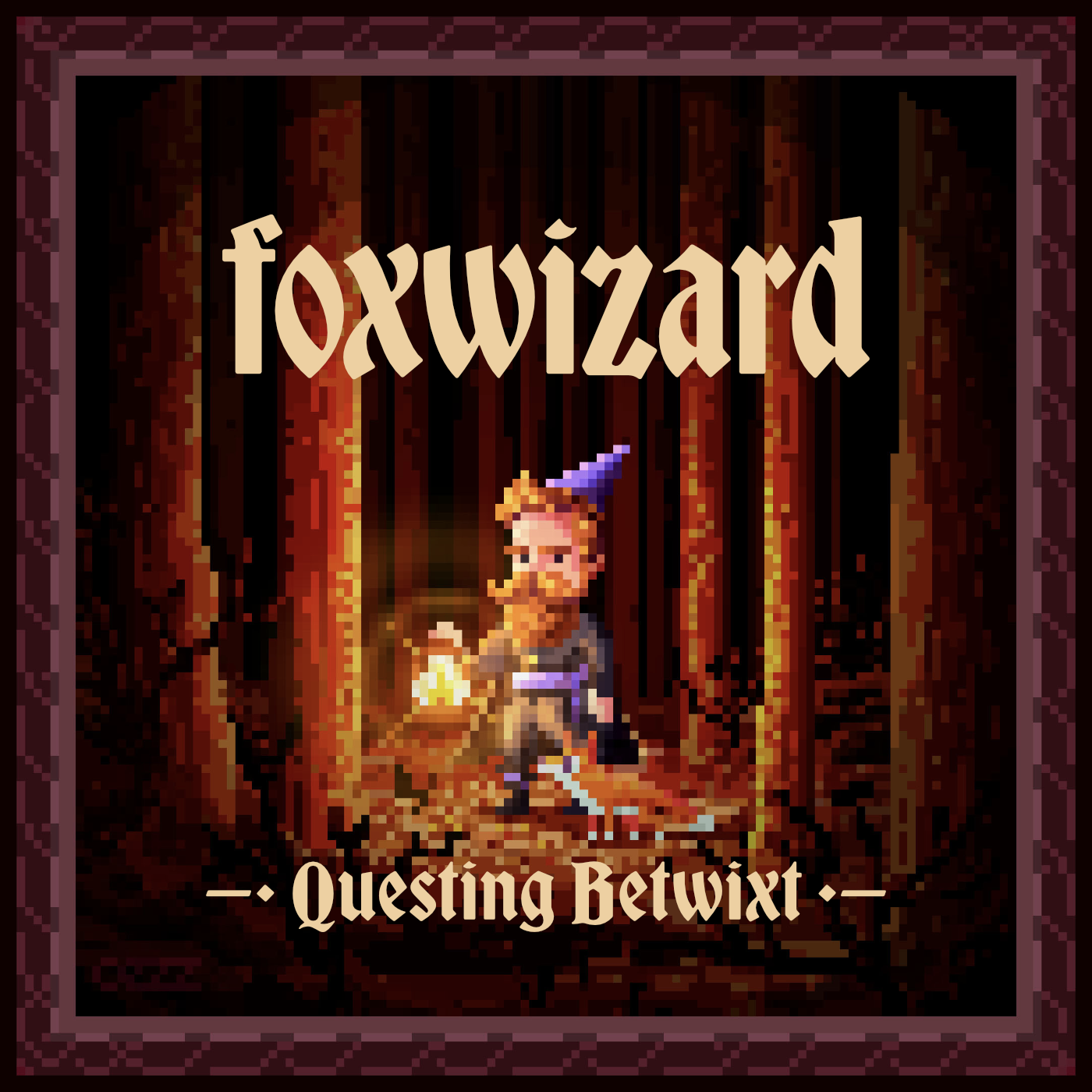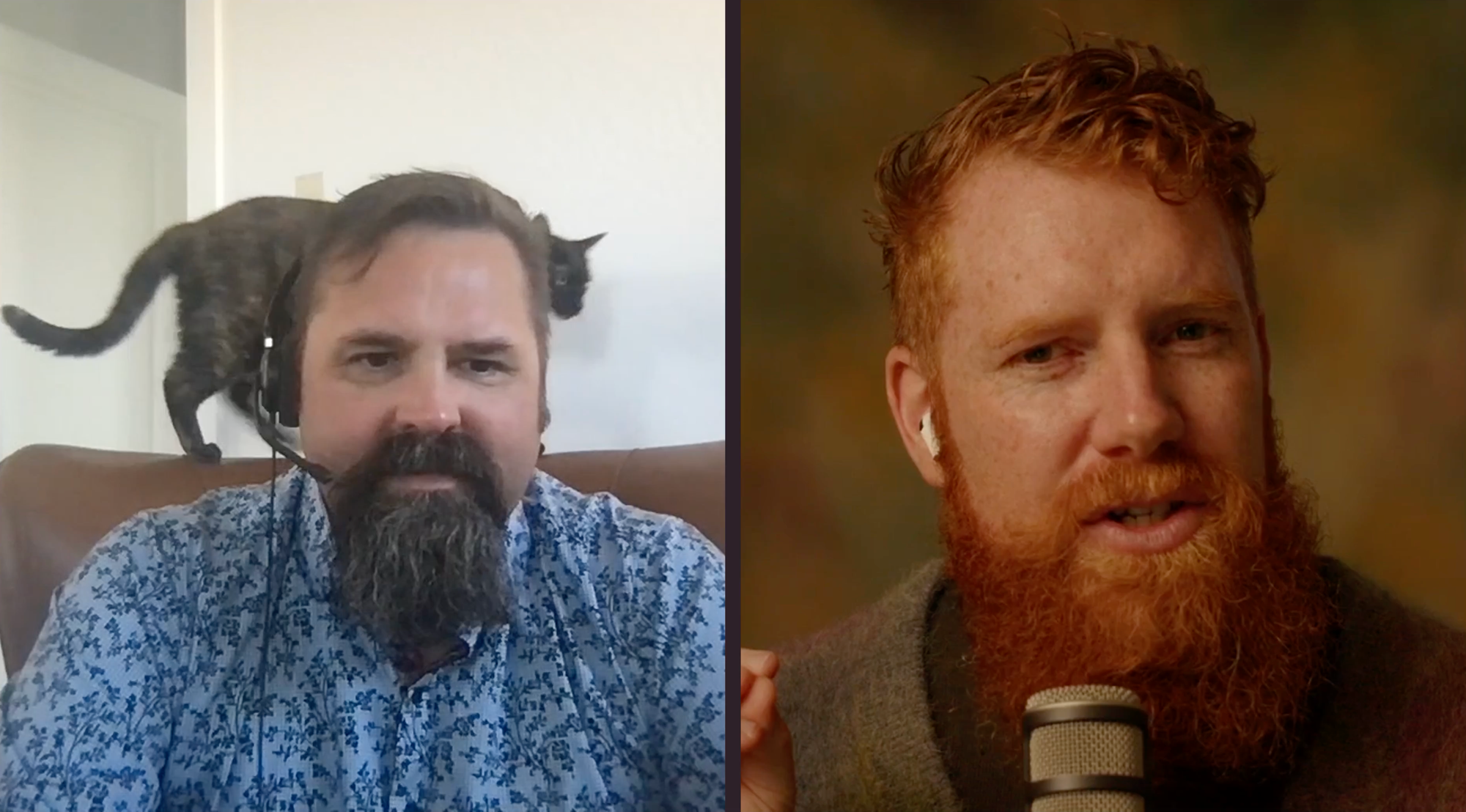e15 // Warmly Secure

My intention with this podcast has long been to court the perspectives from fellow kindred spirits who quest amidst the liminal and emergent. Folks who, loosely, have a combination of at least a few of the following qualities:
- a metamodern ‘both/and’ orientation[^ The ability to hold paradox and contradiction as generative rather than problematic.]
- a metasystemic lens[^ The capacity to perceive, compare and contrast multiple meaning-making systems.]
- metarational capabilities[^ The ability to fluidly navigate between systematic and non-systematic approaches to meaning, recognising contextual appropriateness of different cognitive modes.]
- complexity savvy[^ An apt appreciation for emergence, nonlinearity, and adaptive dynamics coupled with a comfort for sense-making beyond closed systems and mechanistic causation.]
- mythopoetic sensibilities[^ The acuity for mythic, metaphorical, and poetic modes of meaning-making; a deep knowing of narrative and symbolic dimensions as epistemologically valid.]
- a deep sense of the metacrisis[^ A deep and sobering understanding of the underlying generator functions that give rise to our interconnected polycrisis and existential threats to civilisation, humanity, and Life.]
- an embrace of the infinite game[^ James P. Carse’s concept of ‘playing to continue the play’ rather than to terminate it through winning; a vision of life as play and possibility.]
- a transperspectival flex[^ The capacity to simultaneously hold multiple perspectives whilst recognising each as partial; seeing through rather than from any single viewpoint without falling into relativistic equivalence.]
- a bias towards relationality and wholeness[^ Deep knowing of our fundamental interconnectedness; resistance to fragmentary thinking that artificially isolates phenomena from their contexts; an emphasis on relations between nodes; and understanding that all nodes themselves emerge via relationality.]
- a sense of humour[^ As Layman Pascal describes in Gurdjieff for a Time Between Worlds: “A quality of wit, cognitive liberty and perceptual acuity that can appreciate the ridiculous”.]
- a kind of wisdom[^ A practical discernment that transcends mere knowledge; the integrated knowing of when to act and when to refrain, born from pattern recognition across domains and lived experience. Or: an ability to walk the path of least unnecessary suffering.]
- a kind of wit[^ Associative knowledge; the agility and capacity for unexpected connections; the ability to distill fresh alchemised insight in a manner that is timely, relevant, and apt—in a manner that subverts and/or surpasses conventional thinking.]
- the hint of wiles[^ Strategic subversion in service of higher purpose; the artful capacity to work obliquely rather than directly, coupled with pragmatic cunning.]
- a bright mind[^ Intellectual luminosity that illuminates rather than merely processes; clarity and honesty of thought coupled with the capacity to hold complexity without losing coherence.]
- a warm heart[^ Genuine care and empathetic resonance that complements intellectual capacity; the affective wisdom that recognises our fundamental interdependence and acts from compassion.]
This list is non-exhaustive, but it gives a good gist.
And so it is quite a pleasure to be sharing this episode with you.
Greg Dack is a kindred spirit who has been subscribed to the museletter I write here for over half a decade. We’ve exchanged conversations over this time, and I have received wonderful letters from Greg over the years. You might have heard me lament at my tardiness in responding. 😅
Let me introduce him. Here’s a semi-official bio of sorts.
Greg Dack has been a public sector security practitioner for more than 20 years and has successfully worked on security challenges and solutions ranging from small scale to national level. His approach is centred in curiosity about understanding what creates the security challenges communities face and how to develop and sustain approaches that work with the community.
Greg sees security as one of the facets of the polycrisis and seeks to understand how security interacts with, and is often a symptom of, other facets. This approach supports solving not just single symptoms but developing new approaches to enable and empower the communities they serve.
But what I also know is that Greg has a deep wisdom and warmth to him, and he exemplifies many of the qualities and sensibilities listed above.
In this podcast we talk of security—through the lens of a complexity practitioner. It’s very refreshing, and the kind of conversation I want for our world to move towards—more so than sniper towers and mass surveillance.
Greg is attuned to the paradox of security, in that you can work towards maximising security by turning a community into something akin to a prison. Sure: limited freedoms might make for greater security—but at what cost?
Naturally: it’s complex. There are no clear ‘right answers’ to this. Or well, there could be—if we collapse the field of enquiry into a merely complicated domain crippled by measurement. Optimised to have ‘no incidents’.
This reminds me of an excerpt from Dr. Martin Shaw’s book Courting the Wild Twin.
“There are stories about living without relatedness. They don’t tend to end well. Without relatedness we dwell in a place the Inuit call the Moon Palace. The Moon Palace is a place that appears perfectly safe: we have a great view of the earth and its goings-on, but we touch nothing. We can spend years and years up there. Heartbreak will get us there. The cool of the Moon Palace is a very dangerous place to be. Likely there comes a point where you want to come back down.”
This notion of relatedness is something that we are going to need to keep coming back to. The Moon Palace might be safe—but that’s not where life happens.
I know all of this might land a little differently right now, given the heightened anxiety of our times. Particularly amongst those in North America, given what happened this week. I should also note that I am quite rusty at being in conversation with people on the podcast. I’ve got a great thing going on with John Anthony in our Kindred Spirits episodes—but as you know, these can get a bit loose. And in this conversation with Greg I kinda stumbled into a few domains that I later decided to edit out, because of my uncharacteristically inelegant clumsiness.[^ Rather than my usual strategic incompetence.]
Greg is the third person I have spoken with (other than myself) on this podcast.[^ Once upon a time I had another podcast with many folks interviewed but... I deleted that. Cocoon shit.] In December last year I had a lovely conversation with Simon van der Els[^ Who I am still in conversation with today.]—but that’s about it.
I want to chat with more folks. Folks who mostly exemplify the qualities I listed above. I’m also aware that, six years ago, Lauren Duca quipped: “Did You Know: A group of two or more white men is called ‘a podcast’.” Suffice to say: I know, and I want you to know that I know that you know, too.
Yet still, I hope the heart and spirit of what I am doing here shines through. And with this conversation, I have no doubt.
Here’s an artificially intelligent overview of the topics this conversation purportedly traversed.
00:00 An introduction to Gregory Dack and His Work
05:03 Exploring the Philosophy of Security
07:09 The Complexity of Security in Communities
10:01 Understanding Safety vs. Security
13:08 The Role of Security Practitioners
16:18 The Impact of Community and Connection
19:04 Tools vs. Solutions in Security
22:04 The Unintended Consequences of Security Measures
25:10 Lighting and Its Impact on Perception of Safety
27:34 Exploring Security and Trust
29:31 The Balance of Cynicism and Optimism in Security
30:56 Learning from Diverse Experiences
32:48 Navigating Risk and Community Dynamics
35:00 Creating Conditions for Meaningful Conversations
36:51 Assessing Security Programs Effectively
37:20 Understanding the Value of Security Programs
39:51 Identifying Unintended Violations in Security
41:18 Engaging Communities in Security Solutions
44:46 Resilience and Anti-Fragility in Security
47:39 Learning from Incidents and Near Misses
49:47 The Role of Ego in Security Professionals
50:16 Fostering Local Kinship and Community Support
57:08 Navigating Protest and Security
59:31 Community Responses to Crisis
01:00:00 The Role of Media in Shaping Perceptions
01:01:23 Understanding Grief and Loss
01:09:15 The Wisdom of Samwise Gamgee
01:17:06 Creating Community Through Connection
Greg’s approach suggests that our most enduring sense of security emerges not from fortress-building but from cultivating the conditions that enable communities to be and become inherently more caring and resilient. There’s an echo of James P. Carse’s analogy of the machine and the garden, here.
This is perhaps the deeper invitation: to see security work—like all meaningful practice—as fundamentally relational. To understand that the question is never simply ‘how do we make things safe?’ but rather: ‘how do we create the conditions for ongoing aliveness?’

I encouraged Greg to start a micro blog. You can connect with him and follow his work at greg-dack.micro.blog 🧡

Member discussion